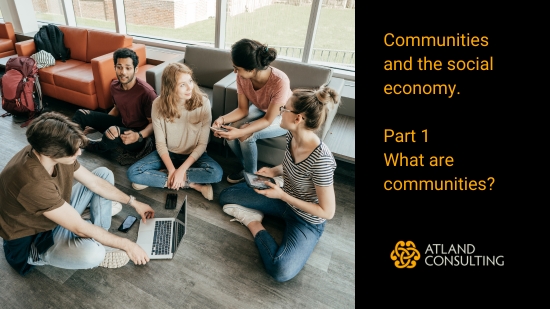There was a time when a significant number of NGDOs did not stop doing projects of all kinds. Sensitivity, empathy and the desire to help seemed to proliferate everywhere.
Although now it seems that nothing changed, it is enough to get closer to those who received the help to see that it was useful (it still is). However, the dynamics and way of working were unsustainable.
The public funds that reached the NGDOs stopped flowing and those entities did not have the capacity to remain standing. Even those that had a membership base saw their contributions reduced because the successive crises and total uncertainty were causing a slow, but constant, loss of support.
However, the problems were still there.
For many people, once it is understood that there is something wrong, that it has a negative impact, there is no turning back. You cannot live turning your back on a problem. It was time to make changes, it was time to look for new paths to continue advancing in the reduction of inequality, in the incorporation of everyone into the labor market, to stop the damage to the planet,…
The NGDO model did not require plans and the risks were moderate. Changing that model is not something that can be done overnight. We must manage “the suspicions” of society, the reluctance of those who have been working in a certain way for years, and we must begin to incorporate a discourse in which values and principles are supported by spreadsheets and not flagpoles. .
And we continue on that path.
The social and solidarity economy has become a strategy and tool for change. Leading the fight for certain values and at the same time making “the numbers” subject to those same values has proven to be the only truly effective form of change.
We see how every day, not without detours or steps backwards, this vision causes new social economy projects to appear and that their values and limits “contaminate” the rest of the economy, forcing a necessary reflection.
In Spain, one of the countries in which we usually work, we have been able to see how these types of projects generate dynamics and ramifications of all kinds.
Spain is a country in which cooperatives are mostly agrarian and that had an important influence in urban environments in the 60s and 70s of the last century (at the end of General Franco’s dictatorship) precisely due to the rural exodus. The Spaniards who went from the small towns to the city, took their customs and ways with them.
Except for the case of the Basque Country, in the rest of Spain they were disappearing and were even considered a mechanism for times of famine and poverty.
All that has been changing for a few years.
Today, cooperatives are appearing in urban environments that are aimed at basic issues such as food or energy. Important? Of course and terribly difficult too. They are strategic sectors with many interests on the part of powerful companies and with consumer dynamics mired in inertia that make it very difficult to gather support.
If we followed the classic NGDO model, these entities would have already disappeared. Being able to provide services such as renewable energy (ECOO, SOMEnergía O Solabria) or being able to provide food obtained with environmental and justice criteria for producers (the case of consumer groups) has been key to their survival. The difficulty (providing services and producing) has been the essential element for its survival (customers with a commitment beyond the mere economic transaction).
It is to be hoped that if someone sees creating such an organization as possible and positive, they will think that this model can be transferred to other areas. This has caused some of the organizations that have promoted this new way of working to create schools and training plans to explain the difficulties and the way of working that has led them to survive in times of uncertainty.
Economists Without Borders provides support to move businesses forward through training in making plans, basic finances, etc.
Since 2019, ECOO (renewable cooperative) has had a School of Economic Activism for social and solidarity economy for young people between 18 and 35. Economists Without Borders has the El Nido project to put agents involved in the social economy in contact.
These projects show us how the transition from classic models to current models is possible. It is not so much about replicating as seeing how they have been able to give new meanings and provide tools for change.



